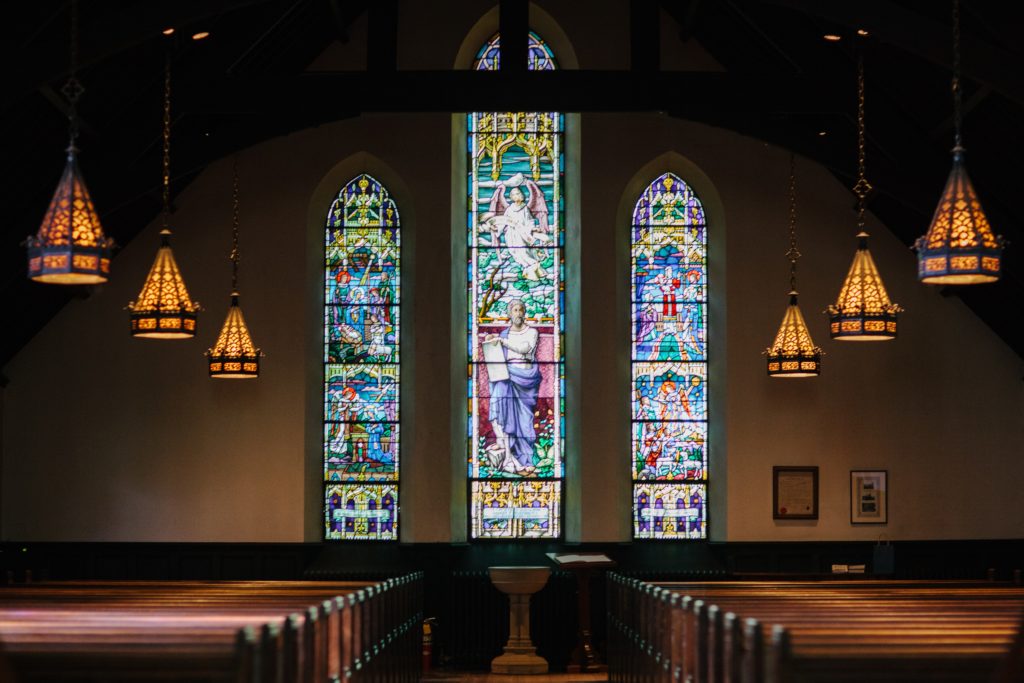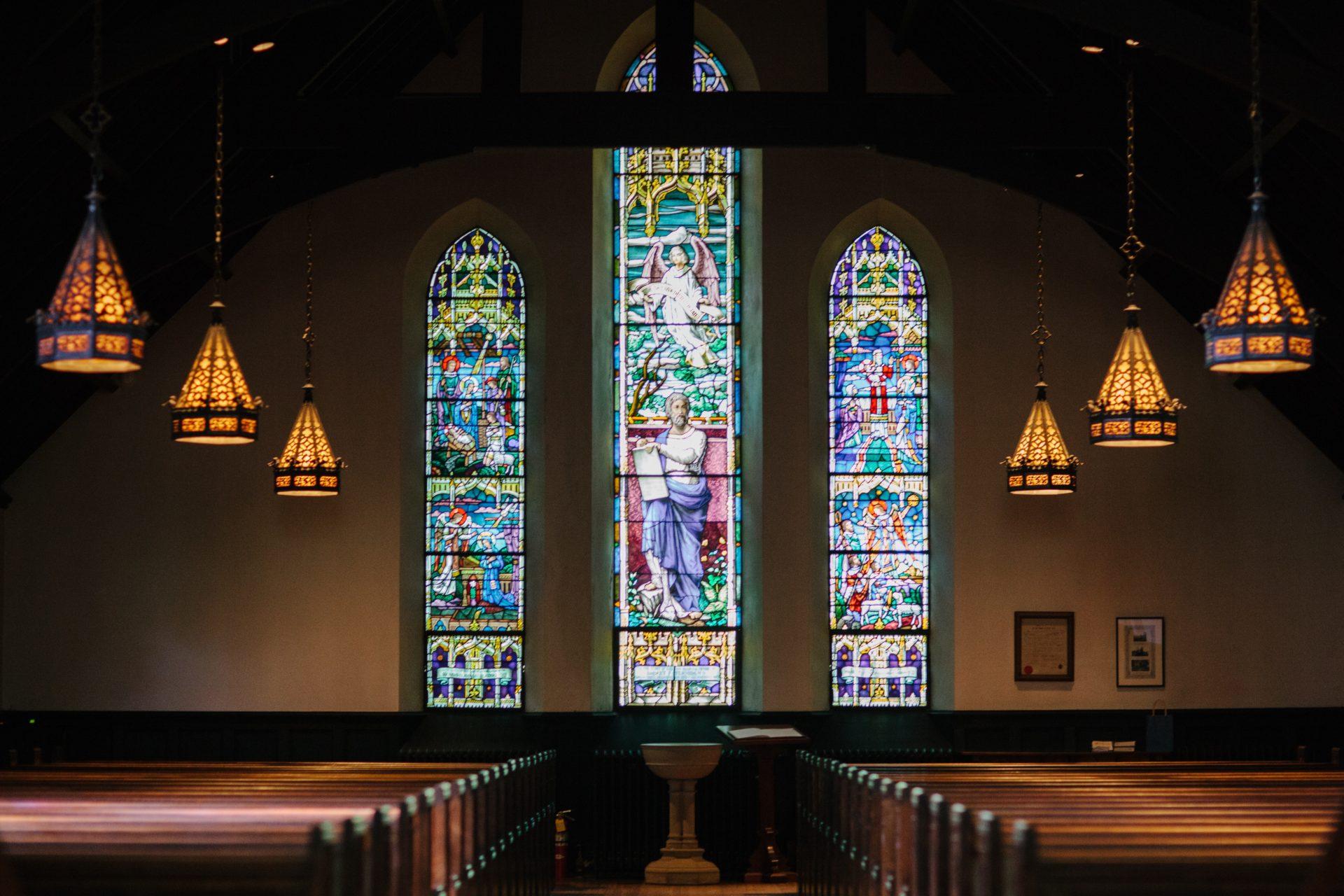How to Approach Corporate Church Services

This is part of The False Promise of Discipleship blog series from The Bonhoeffer Project. Read the blog that came right before this one by clicking here.
Bill recently taught in our (Brandon’s) church community in Long Beach. At the end of the message, he turned to the congregation and asked the people, “Okay, so … what are you planning on doing with this message? How will your hearing of this message affect those in your life?”
These are brilliant questions because just by asking them, you interrupt the consumerist mindset that society and sadly, the church, have conditioned people to follow.
When we gather, we must teach people that, “they are already close to Jesus.” That can sound crazy, especially when we consider the struggle and brokenness of ourselves and the people around us. But in acknowledging this weakness, we can teach what the Bible teaches: Despite your brokenness, despite your woundedness, no matter how damaged you may feel, you are close to Jesus! You don’t have to work to get close to Him. How to teach that well is the topic of another, longer book by someone more gifted than the two of us, but suffice it to say, we have to actually teach what Paul taught: that we are already dead, buried, and resurrected with Christ. We work out our wholeness from that place of already being brought near rather than laboring under The Human Paradigm’s false promise of arrival and “being fixed” if we just try hard enough.
Bill Hull and Brandon Cook, authors of this blog and eBook, will be teaching at this year’s Forum. Meet them and get more content like this in person at the 2017 National Disciple Making Forum.
This is one of the largest gatherings of disciple makers in North America with 65+ workshops, 15+ speakers, and 10+ tracks. Join us to learn practical ways to make disciples of Jesus this November 9-10 (Thursday-Friday). Register for the 2017 National Disciple Making Forum here.
Further, when we gather, including and especially during Sunday and large church gatherings, we create culture based on what we celebrate and the questions we ask. And we need to make it clear to people—through celebration and the questions we ask—that discipleship is about loving and serving others.
The challenge here is that too many times “mission” and “loving others” are presented as programs or activities (projects), like going to the homeless shelter
once a month. We’re all for going to the homeless shelter, but we have to break down people’s notion that mission is confined to a specific slice of the calendar rather than a lifestyle that we engage in at every moment as we become aware of where Jesus is at work around us. When Jesus encountered the woman at Jacob’s well, He didn’t look at His sundial and say, “Yes, it’s time for my missional hour.” No, Jesus was aware that at any moment He might walk into a space where His Father was clearly at work.
How, then, do we lead people into this awareness of ministry at any possible moment?
As an example, in our (Brandon’s) community in Long Beach, we have begun to close our worship gatherings by asking, “How are you doing loving those that Jesus has placed in your life?” and “What is Jesus speaking to you, and how will you respond this week?” We have used very specific training to clarify what we mean by “those that Jesus has placed in your life,” so it’s not quite as broad as it sounds at first (see below under discipleship processes). But the point is that we are being intentional about communicating that discipleship is not a two-hour activity we fit into already busy schedules. We are seeking to create a culture based on the core premise that discipleship is about orienting our lives around loving others and being prepared to watch the Kingdom of God manifest and tell the story of God.
In addition to the challenge of re-teaching people what mission is, sharing God’s story is a core challenge. Many people have wonky paradigms for what evangelism is. They have been taught that you’re “doing evangelism right” if you’re trying to persuade someone within an apologetics argument, or you’re angling for an opportunity to share Jesus with them. Apologetics are great, and so is being prepared all the time for putting words to the hope that lives within us (1 Peter 3:15), but if those things are not born out of Christ-like presence with others and an experience of love, they will have little effect or value. Again, that’s the subject of a different book, but suffice it to say that re-teaching and retraining people how to live their lives with and for others—ready to explain the hope that comes from Jesus—is a major challenge.
First things first, though: Are we creating cultures based on The Human Paradigm of “How are you doing?,” or are we orienting people into the bigger questions of “God, how can You be this good?” and “How am I doing loving others?”
If we ask the right questions, we can start to understand how to create a culture of discipleship in our unique contexts.
*Stay tuned by coming back to our blog for the next blog in this series, which will be coming soon!
This is an excerpt from the free eBook written Bill Hull and Brandon Cook of The Bonhoeffer Project. You can download the full eBook on their homepage here.
Bill Hull is a Co-Founder of The Bonhoeffer Project. Bill’s passion is to help the church return to its disciple making roots and he considers himself a discipleship evangelist. This God-given desire has manifested itself in 20 of pastoring and the authorship of many books. Two of his more important books, Jesus Christ Disciple Maker, and The Disciple Making Pastor, have both celebrated 20 years in print. Add his third in the popular trilogy, The Disciple Making Church, and you have a new paradigm for disciple making.
Brandon Cook is the lead pastor at Long Beach Christian Fellowship and a co-founder of The Bonhoeffer Project. Originally from Birmingham, Alabama, he studied at Wheaton College (IL), Jerusalem University College, Brandeis University, and The Oxford Centre for Hebrew and Jewish Studies. He worked as a professional storyteller before joining a transformational training organization and moving to SoCal in 2006, becoming a pastor three years later. Over the course of five years of pastoring, he became convinced that his work—and the work of the church—is to become fully committed to discipleship and making disciple-makers. The Bonhoeffer Project is for him a quest to live into the question “How are people transformed to live and love like Jesus?”






